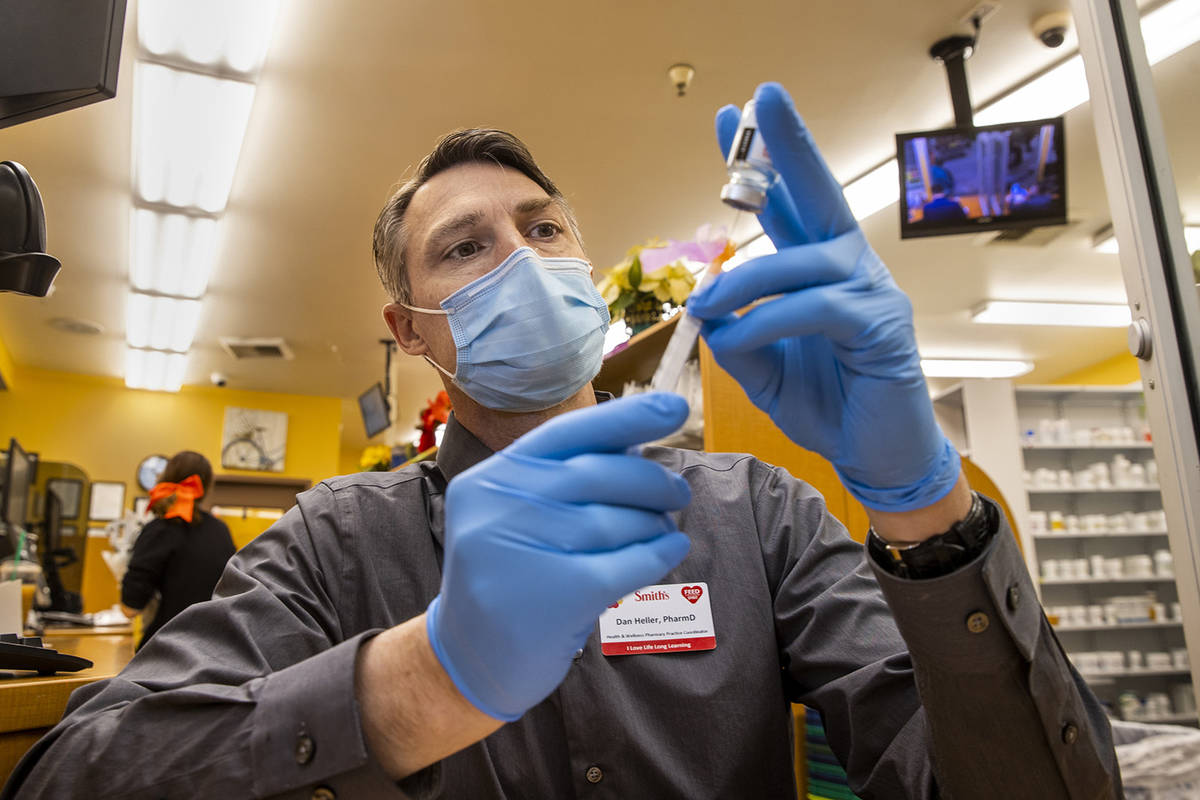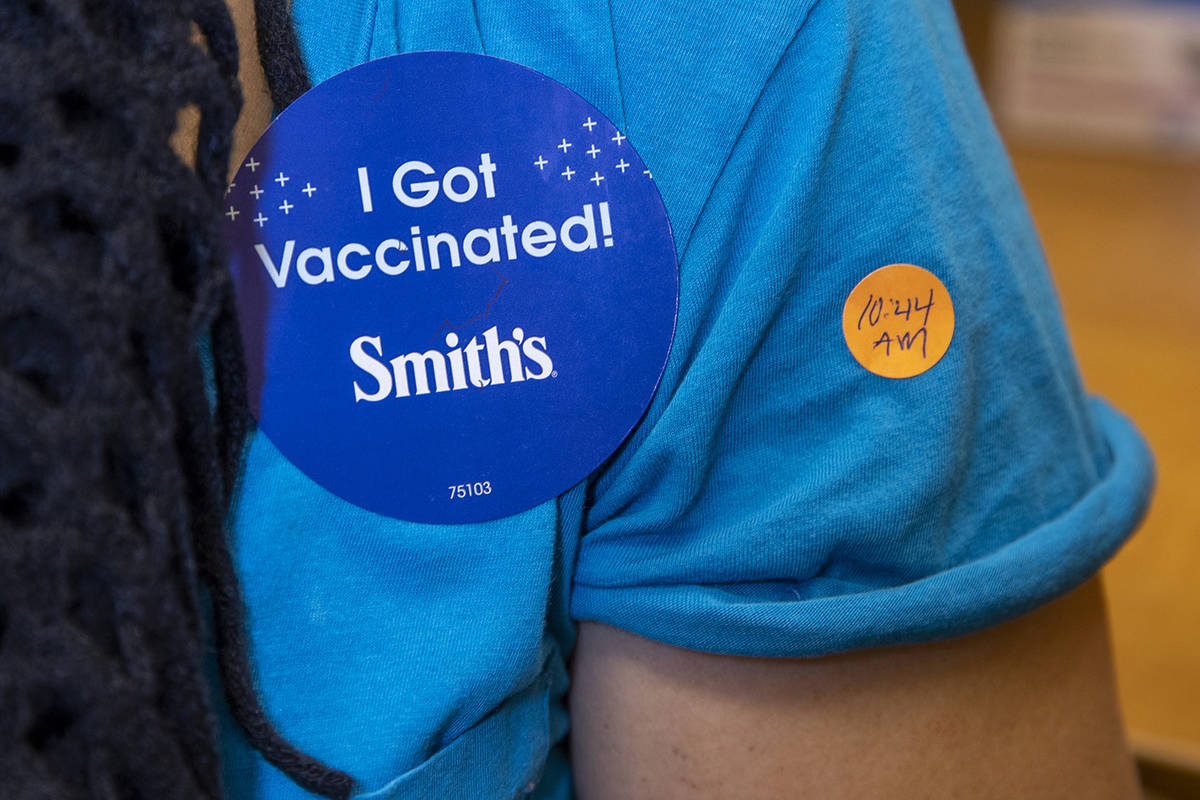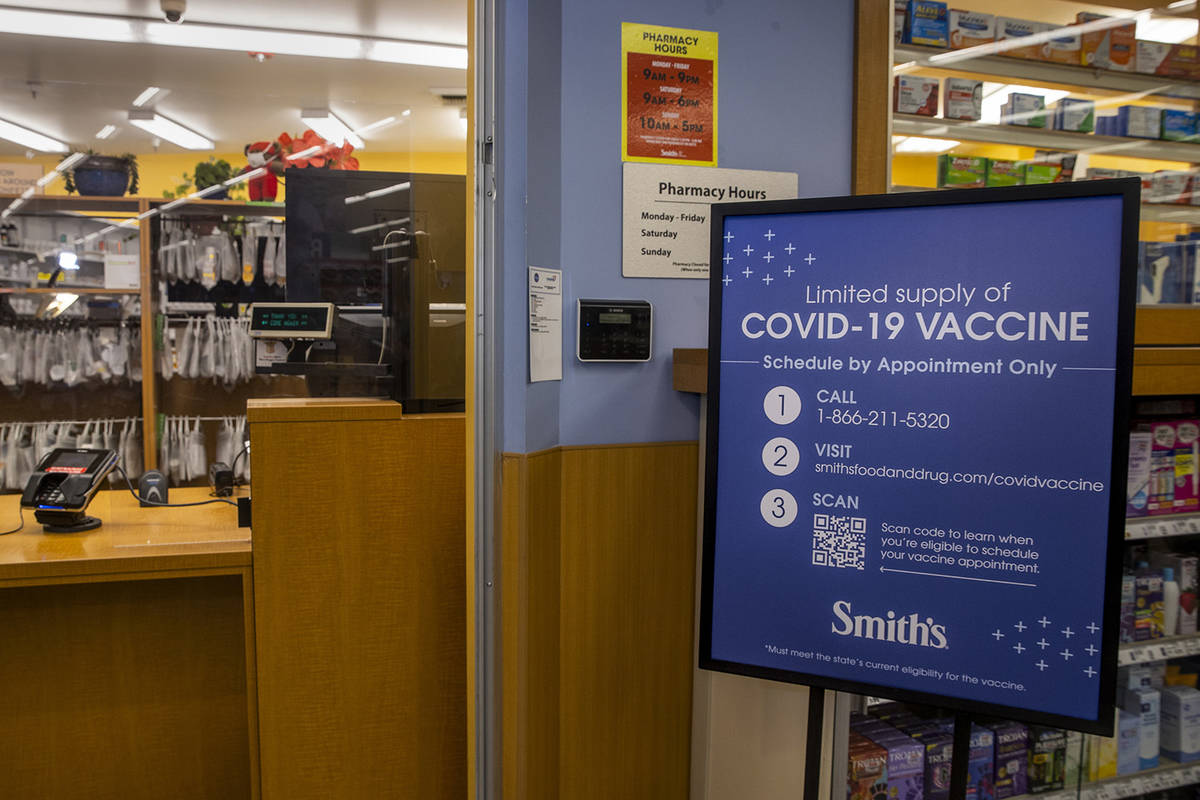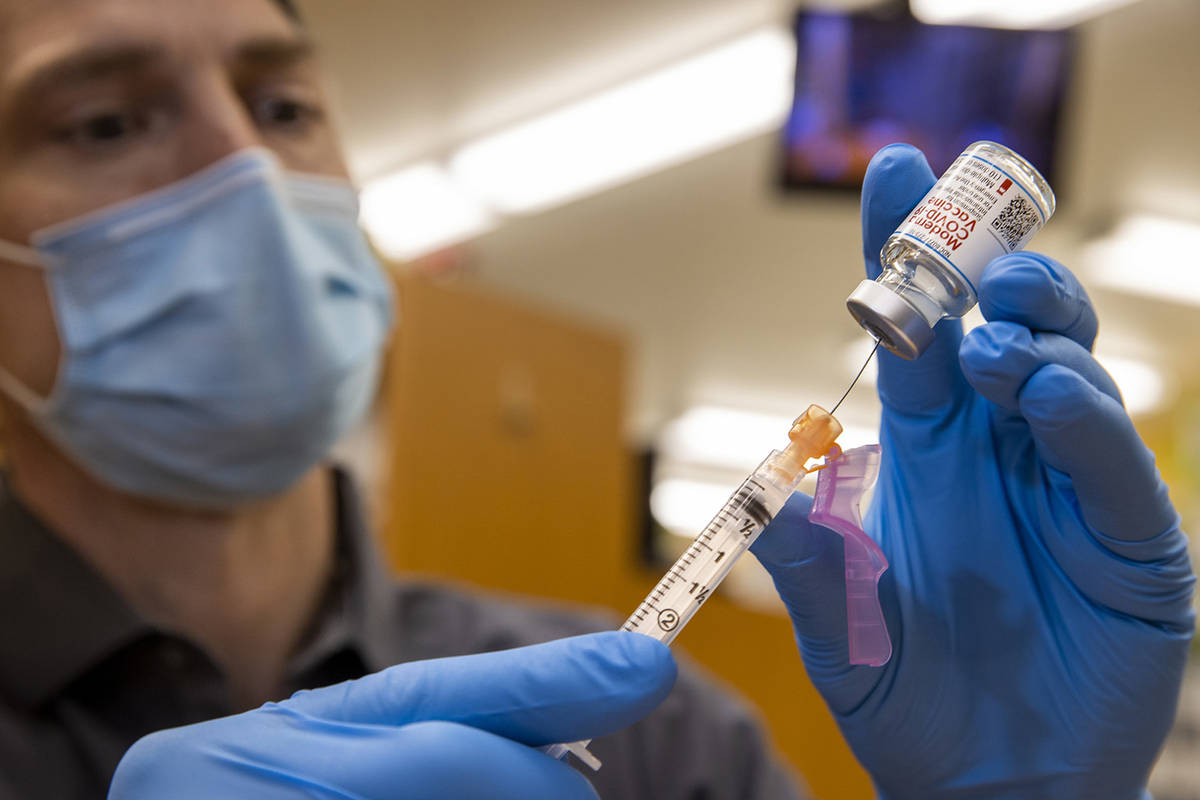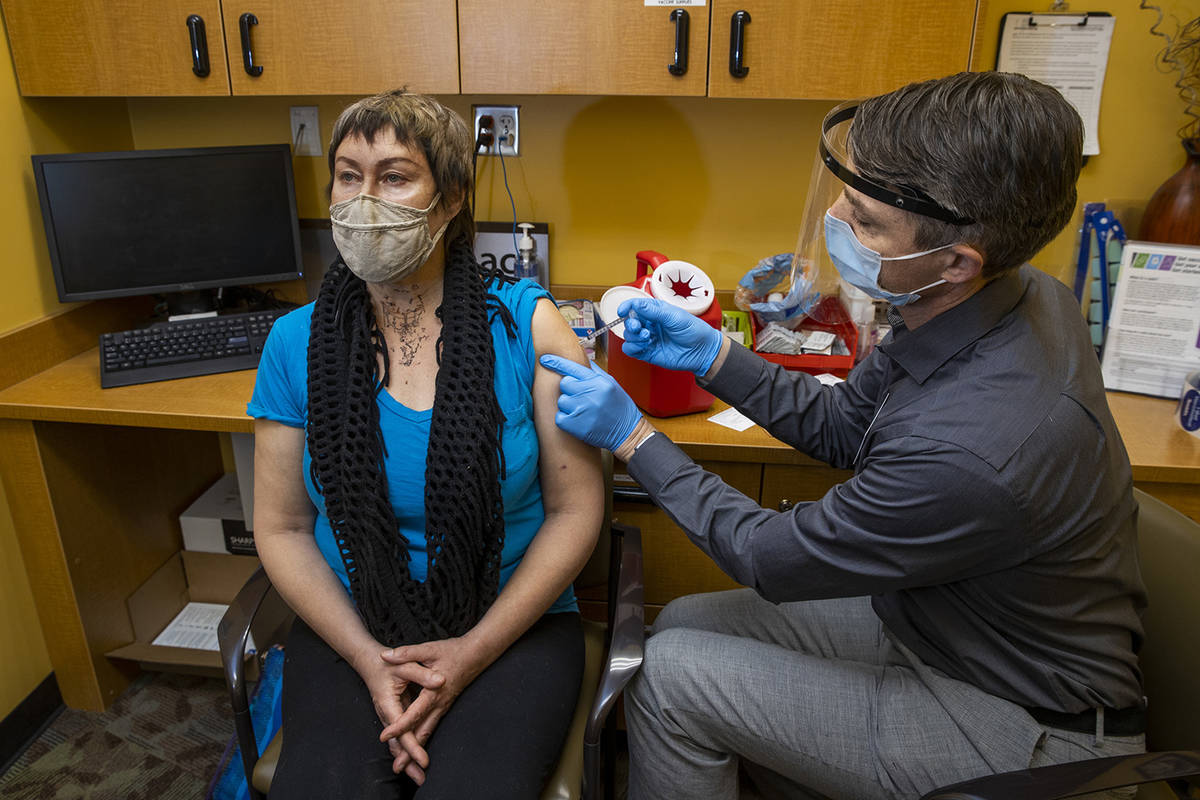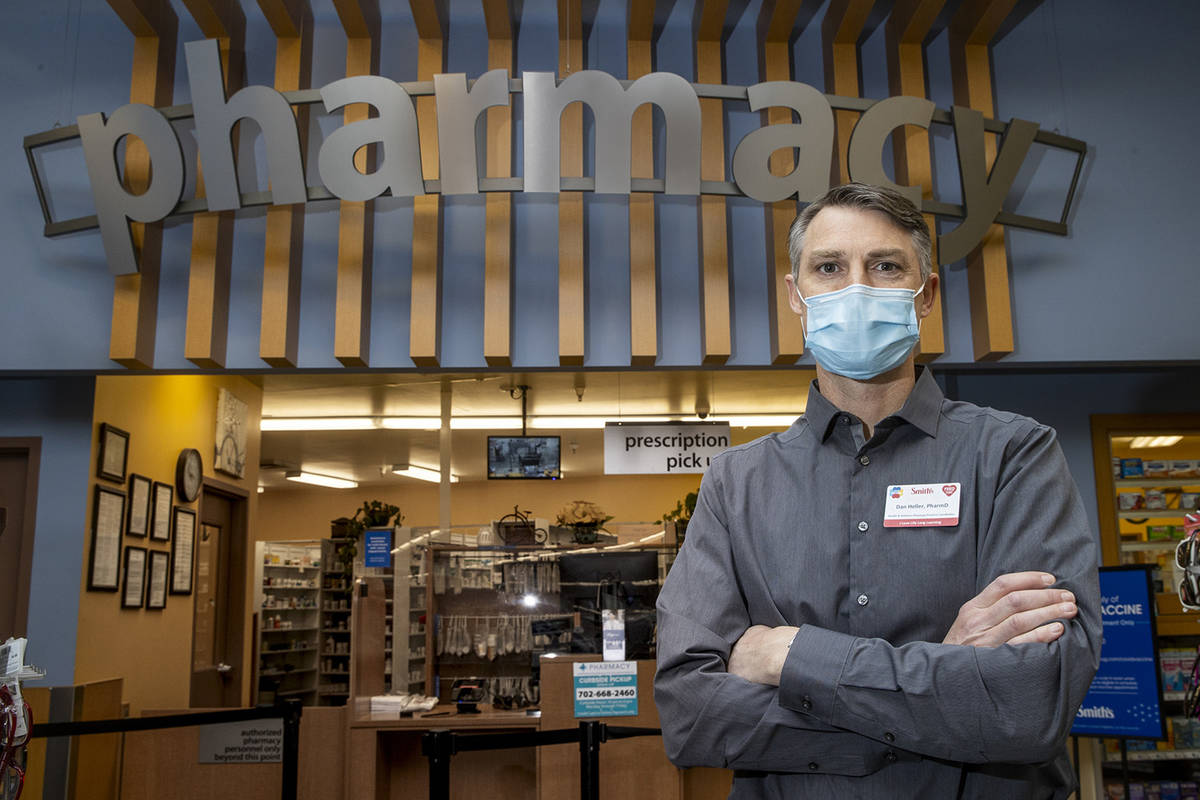Wider eligibility should fill every vaccine slot. It’s not happening.
Just two weeks after extending eligibility for COVID-19 vaccination to workers in Southern Nevada’s massive hospitality and casino industry, officials are again having trouble filling appointments.
Some 78,000 Clark County residents received a first dose of vaccine through the week ending Tuesday. That’s a drop of more than 20 percent from the prior week, according to the Southern Nevada Health District’s weekly update.
Although local officials have come to expect an “ebb and flow” of vaccine demand, Clark County Fire Chief John Steinbeck said he was surprised the numbers had dropped so quickly after members of the region’s dominant industry became eligible.
“Our expectation was that would fill up every slot,” Steinbeck, who helps head the county’s vaccine operations, said of the recent eligibility expansion.
March has proved to be a challenging month for Southern Nevada’s vaccination efforts, even as the federal government has increased the state’s weekly allocation of first and second doses.
Early this month, health district officials reported thousands of vaccination appointment slots were going unfilled. Days later, state officials opened eligibility to the region’s hospitality and food service workers, a massive category in the gaming and tourism sectors of Las Vegas’ economy.
The county is now finding itself with open appointments again.
300 thawed doses threatened
Low turnout at the Las Vegas Convention Center mass vaccination site over the weekend threatened 300 thawed doses with expiration, health district health officer Dr. Fermin Leguen said. Officials opened the site on Monday, when it is usually closed, to offer the leftover vaccines to walk-ins.
The county’s two mass vaccination sites have accepted more than 5,000 walk-ins for first doses this month, health district data shows.
During a health district meeting Thursday, board member Olivia Diaz said she believed the state’s new vaccine appointment system was contributing to the problem.
“I think that it’s really imperative that we as a health district remove barriers instead of putting barriers in place,” she said. “The vaccination appointment system is not very user-friendly.”
JoAnn Rupiper, the health district’s director of clinical services, told the board that the appointment system was “working through bugs.” She said the health district is accepting more walk-in to help sites reach capacity, including people who currently are ineligible.
“When a person’s in front of you, you vaccinate them,” she said. “You don’t wait. Because if they wait, they may never come back.”
Overall, more than 555,000 county residents have received at least one dose of vaccine, and more than 290,000 are fully vaccinated.
Despite the recent drop in new vaccinations, the county plans to follow the state’s plan to wait until April 5 to open eligibility to all Nevadans 16 and older, County Commission Chairwoman Marilyn Kirkpatrick said Monday.
“We have about 176,000 hospitality workers, so we wanted to give them the opportunity to get in and get out,” she said.
Slack demand at smaller sites too
Southern Nevada’s smaller government-run vaccination sites are also having trouble filling appointments.
To make vaccinations more convenient, North Las Vegas this week has begun offering appointments at its College of Southern Nevada site until 8 p.m., City Manager Ryann Juden said. The city had been finishing by 3:30 p.m.
“We are a 24-hour town,” Juden said. “We wanted to be more accommodating to that reality.”
An official with UNLV Medicine said its vaccination appointments were only half-filled before eligibility was opened to hospitality workers. Appointments have increased, but not to the levels hoped for.
UNLV’s two sites combined can accommodate more than 2,000 people a day. On Wednesday, the sites had about 1,600 appointments scheduled, said Dr. Michael Gardner, president and CEO of UNLV Medicine, the medical practice of UNLV’s School of Medicine.
Gardner said he’s looking forward to eligibility again being expanded. He’s not worried that sites will be overwhelmed.
“My biggest fear is the vaccine hesitancy is still very real and … we’re not getting the number of people that we want to be vaccinated,” he said. “I think there’s a lot of misinformation out there. I think we live in a time and an era when there’s a lot of mistrust.”
County officials have been working to increase vaccinations in minority communities by addressing distrust and hesitancy.
This week, they unveiled the Back to Life campaign, which aims to curb concerns about the vaccine through multimedia and community outreach. Uber has volunteered to give rides to distribution sites from the 10 hardest-hit ZIP codes in the county.
A similar, longer-standing program for the region’s Latino population, Está en Tus Manos (It’s in Your Hands), appears to be working. About triple the number of Latinos have been vaccinated in March compared with February.
Pharmacies say they are bustling
Meanwhile, open appointments do not appear to be an issue for Southern Nevada pharmacies providing COVID-19 vaccinations. Neighborhood pharmacies may be more convenient for many than mass vaccination sites, which often have waits of an hour or more.
The number of shots administered each week increased by nearly 10,000 this month after high-risk residents age 55 and older became eligible to receive vaccines at pharmacies. The number remained about the same this past week, after pharmacies were charged with vaccinating residents age 16 and older with certain medical conditions that put them at risk for complications from COVID-19.
Appointments fill up quickly at the 35 Smith’s pharmacies in Southern Nevada, which have administered more than 30,000 doses of vaccine, said Dan Heller, health and wellness pharmacy practice coordinator for the region.
The dozens of Smith’s pharmacies in the region are prepared to double the number of shots they can give per day, Heller said. The chain is waiting to receive more vaccine from the state through the federal Retail Pharmacy Program.
“We just haven’t had the allocation yet to quite get there with what the state is giving us at the moment, but we expect that to change significantly in the coming weeks,” Heller said.
Contact Michael Scott Davidson at sdavidson@reviewjournal.com or 702-477-3861. Follow @davidsonlvrj on Twitter. Contact Mary Hynes at mhynes@reviewjournal.com. Follow @MaryHynes1 on Twitter.



